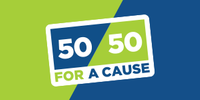If you're out driving and you come across an accident scene, do you know what to do?
"The first thing I would recommend is avoid it," shared Staff Sgt Darren Simons with the Carlyle RCMP. "There's always another way. So if they see what appears to be a collision coming up further ahead, just find another way around it."
"People want to be curious but I know myself, as a police officer, if I'm in Regina and I see a collision further ahead, I just take a right or a left and find a way around it. Because you're just going to get yourself blocked in traffic."
"You've got to remember, there's emergency staff, firefighters, EMS, police officers, there are tow truck drivers, there are sometimes people involved who are walking around and they're not truly focused on what's driving down the road, they're focused on trying to help. So we need people who are driving to focus on driving through the scene. And not taking pictures, not looking at the scene, not trying to figure out what's going on."
He added that during a recent collision, they ran into problems when people tried to take a shorter detour than was advised.
"Then they're bottlenecked again because the collision scene is not just half a block or a couple hundred meters, sometimes it's much longer. I saw a semi backing up a residential road because he tried to take the first turn he could to get back on the highway and unfortunately before we could divert him elsewhere, he got himself bottlenecked."
"We try to make sure there's a large area that is clear."
He also had some people coming to the officers to ask questions about the accident.
"There are members right on the scene where the collision is but there's also members that get stationed farther back to direct traffic and secure the scene. They can't answer the questions because they don't have the answers yet. Once we know the information, we'll release the information to the relevant people. If it's your vehicle, if it's a company vehicle, we'll get ahold of you as soon as we can."
"And a lot of times we do it for everyone's safety. There could be hazardous materials. And we do it for the safety of the emergency personnel who have to be on scene."
"A traffic collision is not a quick investigation. It takes time for us to clear a roadway and it depends on how serious the collision is and what's involved regarding how fast we can do it but if the police have the highway blocked and there are pylons, trust us that we're not going to let you drive through."
The police are also keeping an eye out for drivers trying to take a picture of accident scenes as they drive through.
"We've started issuing tickets to people who use their cellphone or a camera while passing by an accident because they are not focusing on their driving, they are focusing on the collision."
"I've driven through a few collisions off-duty and I'm focused on the driving. When I drive through a collision, I focus on my driving, my safety and the safety of the people."
The problem with people posting pictures of accidents scenes has gone so far that first responders are taking steps to protect the privacy and identity of crash victims.
"We're finding that firefighters that are on scene and police, one of our first focuses is trying to cover part of the vehicle so the licence plate can't be seen, so they can't see what the vehicle looks like because we know people are going to be trying to take photos and putting them on social media."
"And that's not the way you want to find out that your loved one has been in a collision. You want to find out from a police officer with the assistance of Victim Services."













